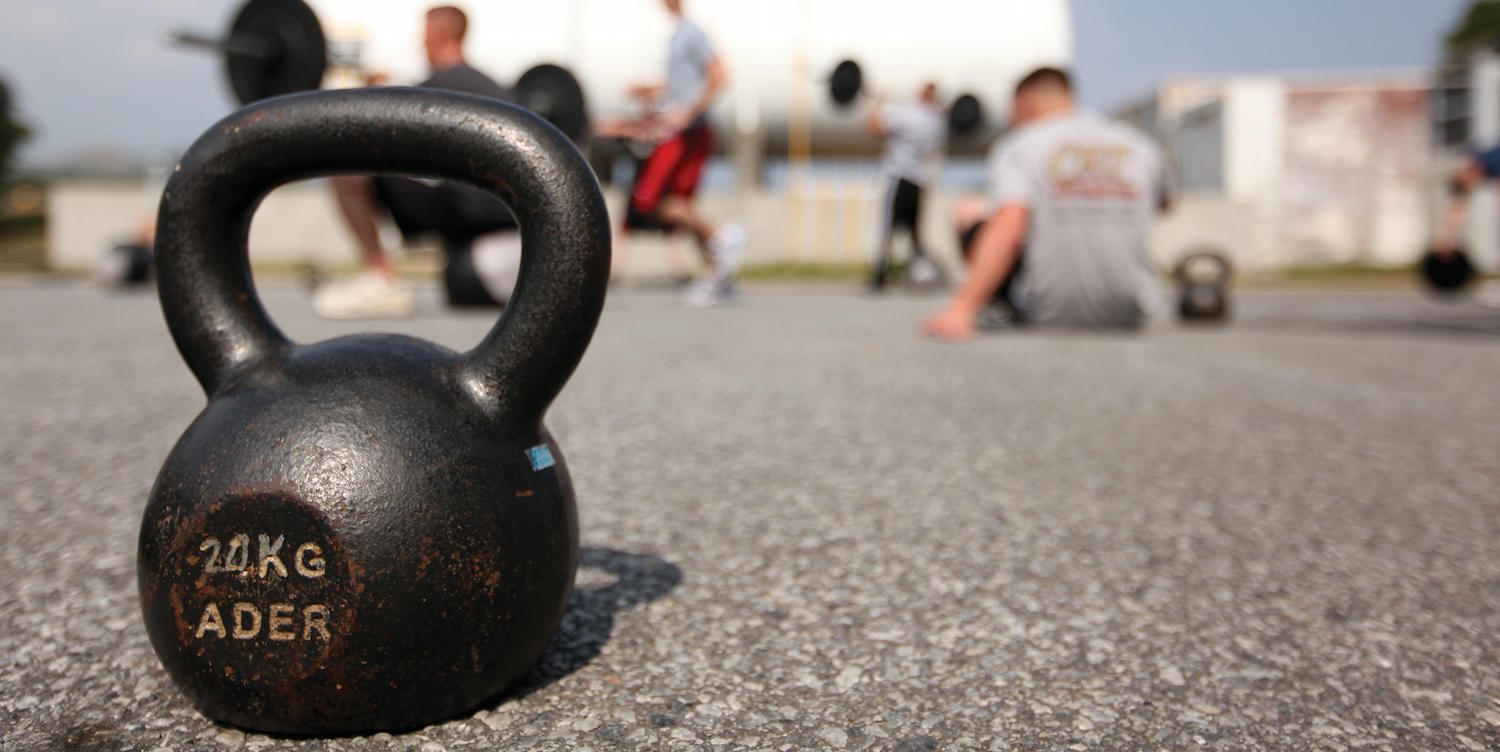

It’s finally happened: You’re out of the military. Nobody’s going to tell you what to do, or what to eat. You’re going to savor every unrestricted bite. Somehow, though, your pants don’t fit like they used to. You feel more tired, and you’re drowning in stuff you never had to think about before. You know what your body was capable of during your service, so what happened?
You’re not alone: According to the VA, almost 8 in 10 veterans are overweight or obese. It’s time to change things up, but you might not even know what’s going wrong. Here’s your diagnosis — and what you need to get back on track.
1) No more required PT.
Those first few months felt like heaven, but now that you’re in charge of your own schedule, things are getting a little lax. Sure, no one’s telling you what to do or where to be, but… was it always this easy to lose time? You’ve spent years developing focus and follow-through, and you’re more than capable of creating structure for yourself. But it’s so easy to miss trips to the gym or put off that run. You’ll make up for it later, right? Your body does best with consistency, though, and you need to set up your day with the right priorities. Physical fitness at least three times a week will pay off over time.
2) You’re feeding yourself.
MREs: done. Mess halls: done. Cooking your own meals: what? You took care of yourself in the military, but now grocery shopping, meal planning, and food prep are all your responsibility. Snacking? Constant. Even if you don’t miss ripping open a vacuum pack and inhaling whatever’s inside, you may not know how to give yourself the nutrition your body craves. It might seem easier to lean on microwave dinners, ramen, and takeout, but there are better ways to fill up your plate. You may even enjoy learning about them. Meal tracking is an easy way to see what’s going on with your nutrition. When you check in on your recommended quarterly BMI measurement, you can see your progress in real time.
3) You’re busy with civilian life.
After years of focusing on your military service, your responsibilities are now all over the place. You’ve got to feed the kids, commute to work, get that project done, run to that birthday party, whatever. It seems easier just to grab something — anything — rather than think about one more task. Feeding yourself might feel like one more aggravation (or one more stressor that you just don’t need right now). However, when you take that time to be mindful about food, your body will pay you back in a good way.
4) No more limits.
There’s a reason you got out. You are done. You never want anyone to tell you what to do again. You’re a grown adult! You’re free! Even if you don’t resent your sergeants and your COs, it’s natural to hit the town and spread your wings a little. Why not party? You deserve to enjoy life a little. It’s important to savor the good times. But if your days (or nights) are nothing but good times, you may start to wonder who’s looking back at you in the mirror. Moderation is different from denial. Knowing your limits can actually help you enjoy things more.
5) You’re doing this on your own.
You’ve spent a significant portion of your life with a tight group of trained, competent and bonded pros. However hard boot camp or a deployment were, you were in it for the long haul, together. But now that you’re in the civilian world, you’re just one person with a much smaller circle to lean on. Feeling alone is a great way to let your best intentions slip. What you need is accountability — a buddy, a coach, a group of people with the same goal. They’re out there, and they’re easier to find than you think.
Taking small steps in the right direction can make a big difference. A health and wellness program like Noom can help you create healthy routines, understand your relationship with food, figure out why you like what you like and get to know what does your body good. You can think of the Noom program, which you can find on iPhone and Android, as something you’re familiar with: like that NCO who always helped you stay on track with your fitness and health. In fact, personal coaches are available to keep you going one-on-one.
Nobody becomes an expert at anything right away. When you get the right help from the beginning, tackling what’s always frustrated you suddenly seems possible. Noom can help give your day structure, for eating, thinking and living your life. You can log exercises, blood sugar and blood pressure on the Noom program, and Noom’s expansive food database means you never have to guess about serving sizes and nutrition value. No one choice has to throw everything off-balance, because when you’re in control, you open up how you can pursue what you want.
By understanding the psychology behind your decisions, you’re best equipped to take ownership and commit to lasting lifestyle changes. Sign up to get yourself back on track at your own speed.
This article is sponsored by Noom.